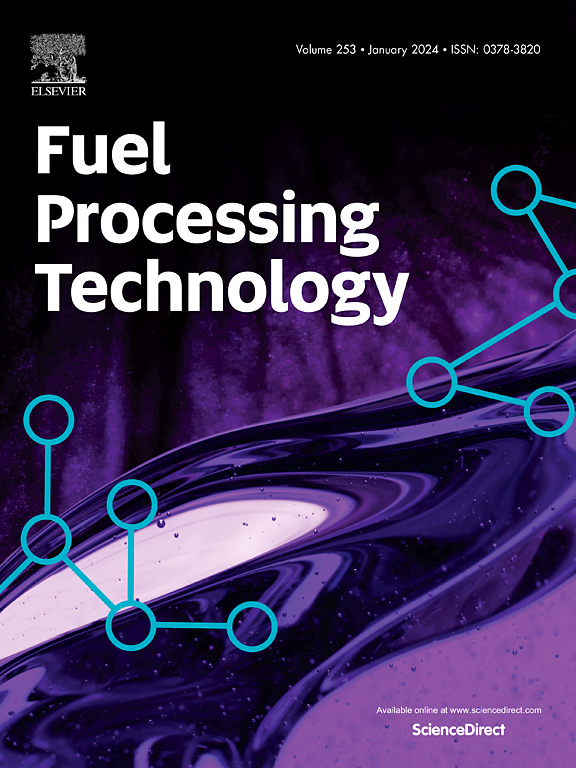Recent advances in biotechnology and bioengineering for efficient microalgal biofuel production
IF 7.2
2区 工程技术
Q1 CHEMISTRY, APPLIED
引用次数: 0
Abstract
Microalgal biofuels have emerged as a promising avenue for meeting the growing demands for clean and efficient energy. However, the integration of microalgae into the biofuel industry is still in the early stages, primarily due to low productivity and high production costs. To address these challenges, researchers are actively exploring innovative methods to enhance biomass, concurrently increasing lipid and carbohydrate content. This review paper discusses the unique attributes of microalgae that make them attractive candidates for biofuel production. Advancements in cultivation techniques, such as photobioreactor design, co-cultivation strategies (microalgae-microalgae, microalgae-bacteria, and microalgae-fungi), and the optimization of nutrient conditions (carbon, nitrogen, and phosphorus) as well as environmental factors (salinity, light, and temperature) were explored to enhance biomass and lipid productivity. Furthermore, genetic engineering tools (genetic elements, gene interference, genome editing, and genome reconstruction) and omics technologies (genomics, transcriptomics, and proteomics) were discussed to gain a deeper understanding of microalgal lipid synthesis metabolism. The application of these techniques in microalgae facilitates enhanced lipid productivity, improved stress tolerance, optimized carbon sequestration and utilization, and reduced harvesting and processing costs. The study also delves into the decision-making process related to software selection, with the overarching goal of improving performance, profitability, and sustainability while mitigating risks, operational costs, and environmental impacts. Additionally, this review highlights future perspectives on large-scale microalgal biofuel production and its industry.
高效微藻生物燃料生产的生物技术和生物工程的最新进展
微藻生物燃料已成为满足日益增长的清洁和高效能源需求的有前途的途径。然而,微藻与生物燃料产业的整合仍处于早期阶段,主要原因是生产率低,生产成本高。为了应对这些挑战,研究人员正在积极探索提高生物量的创新方法,同时增加脂质和碳水化合物含量。本文讨论了微藻的独特属性,使其成为生物燃料生产的有吸引力的候选者。探讨了光生物反应器设计、微藻-微藻、微藻-细菌、微藻-真菌共培养策略、营养条件(碳、氮、磷)和环境因素(盐度、光、温度)优化等培养技术的进展,以提高生物量和脂质生产率。此外,还讨论了基因工程工具(遗传元件、基因干扰、基因组编辑和基因组重建)和组学技术(基因组学、转录组学和蛋白质组学),以加深对微藻脂质合成代谢的理解。这些技术在微藻中的应用有助于提高微藻的产脂率、提高抗逆性、优化碳固存和利用、降低收获和加工成本。该研究还深入研究了与软件选择相关的决策过程,其总体目标是在降低风险、操作成本和环境影响的同时提高性能、盈利能力和可持续性。此外,本文还对未来大规模微藻生物燃料生产及其产业进行了展望。
本文章由计算机程序翻译,如有差异,请以英文原文为准。
求助全文
约1分钟内获得全文
求助全文
来源期刊

Fuel Processing Technology
工程技术-工程:化工
CiteScore
13.20
自引率
9.30%
发文量
398
审稿时长
26 days
期刊介绍:
Fuel Processing Technology (FPT) deals with the scientific and technological aspects of converting fossil and renewable resources to clean fuels, value-added chemicals, fuel-related advanced carbon materials and by-products. In addition to the traditional non-nuclear fossil fuels, biomass and wastes, papers on the integration of renewables such as solar and wind energy and energy storage into the fuel processing processes, as well as papers on the production and conversion of non-carbon-containing fuels such as hydrogen and ammonia, are also welcome. While chemical conversion is emphasized, papers on advanced physical conversion processes are also considered for publication in FPT. Papers on the fundamental aspects of fuel structure and properties will also be considered.
 求助内容:
求助内容: 应助结果提醒方式:
应助结果提醒方式:


